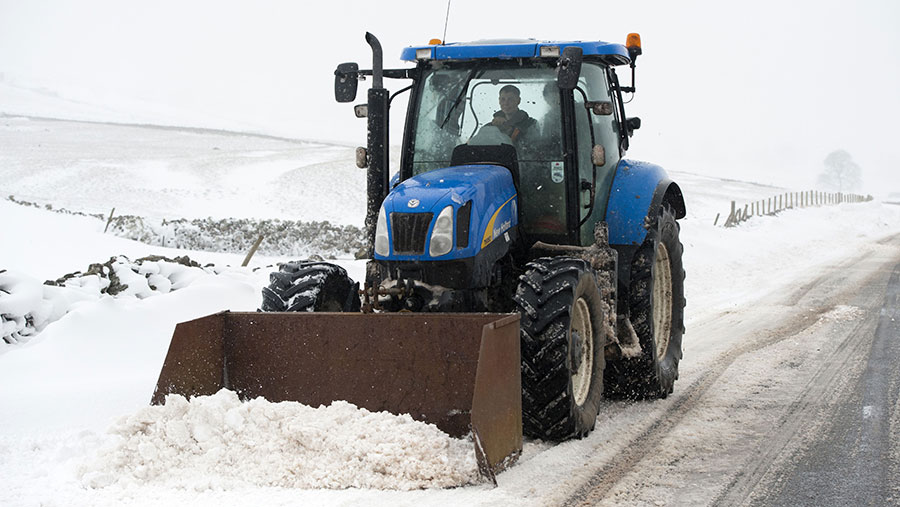Snow-stricken Somerset dairy farmer ditches 8,000 litres of milk
 © FLPA/Wayne Hutchinson/REX/Shutterstock
© FLPA/Wayne Hutchinson/REX/Shutterstock A Somerset farmer was forced to throw away more than 8,000 litres of milk after snow drifts prevented lorries from accessing his farm to collect it.
Mark Wareham, who farms 150 dairy cows at Sunnyside Farm in Trudoxhill, near Frome, said tankers could not get anywhere near his holding for two days.
Somerset was among the counties worst hit after the so-called “Beast from the East” met Storm Emma, causing blizzards and drifting snow that paralysed road networks and shut off farms.
See also: Livestock farmers battle the elements as snow takes its toll
Mr Wareham told the BBC he would be able to claim compensation through his farm business insurance policy for two days’ losses. But after that, he would not be compensated for any further losses.
Milk tankers were expected to reach him over the weekend after milder temperatures melted snow.
“These are pretty extreme conditions that we’ve experienced – it’s been a challenge for everybody,” said Mr Wareham.
“The lorries physically couldn’t get anywhere near the farm. The roads on the way were blocked and I’ve only got capacity to store 5,000 litres on the farm and I produce just over 4,000 every day, so I don’t have enough to store for several days on end.”
He said:“It’s a massive impact – dairy farming is tight enough and hard enough without losing money, but what can you do? You’ve just got to get on with it.
“We’re expecting the tanker to get to us tonight [Friday]. They’ve been excellent – on the phone to us every day to keep us informed.”
NFU advice
The NFU has issued advice to members coping with the aftermath of the extreme weather, including how to deal with missed or failed milk collections and blocked roads, as well as advice on gritting roads and working in low temperatures.
NFU president Minette Batters said farmers are pivotal in the rural community, particularly during times of adverse weather, when hundreds help to clear roads, unfreeze water pipe and provide emergency help to those in need, all while caring for their own businesses and livestock.
She added: “Most businesses suffer during a cold snap and farming is no different. As many affected farmers will be trying to reach remote parts of their farms, I am urging everyone to remain as safe as possible and take the necessary precautions.
“Rest assured, farmers and growers will still be working around the clock to ensure they are able to provide the public with a safe, affordable, traceable supply of British food.”
